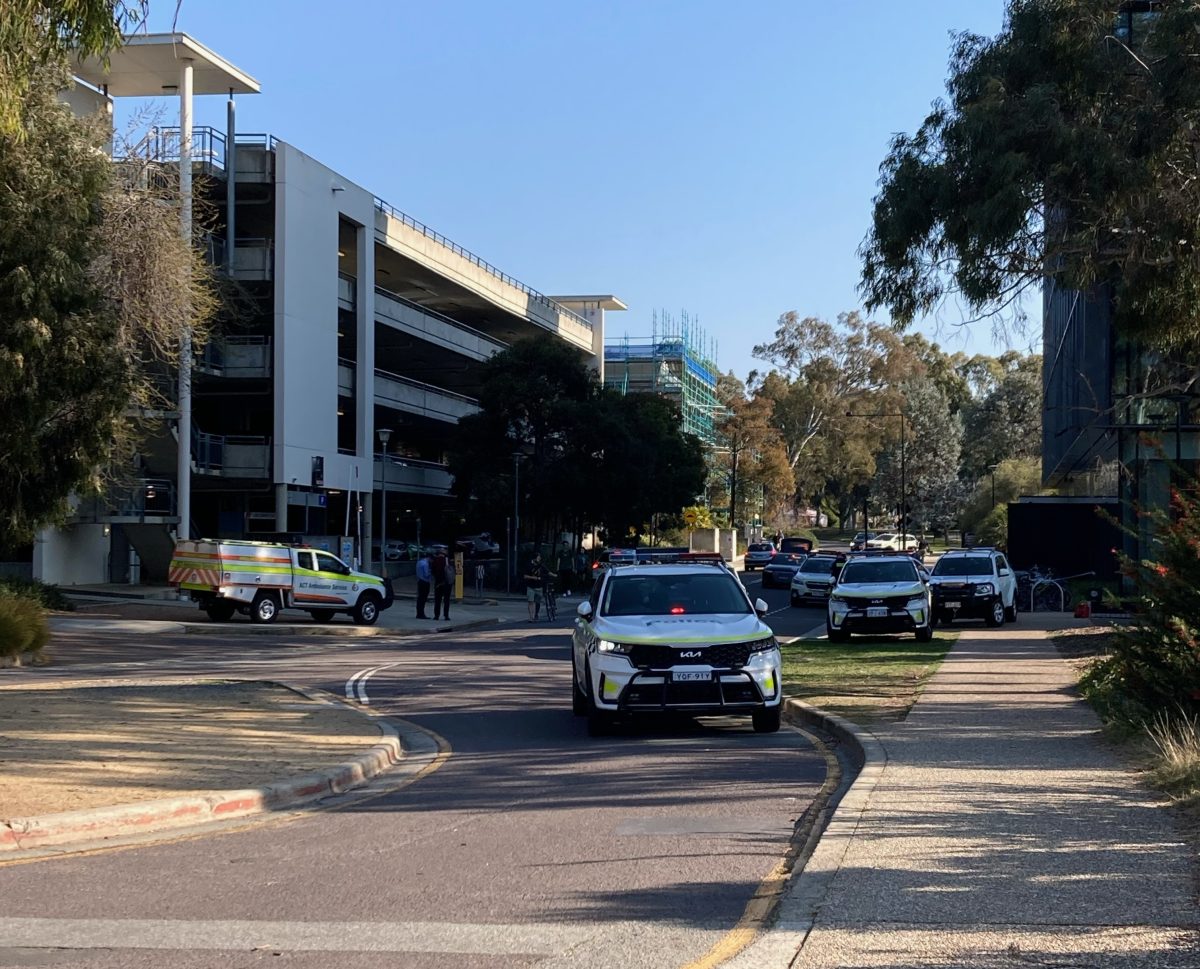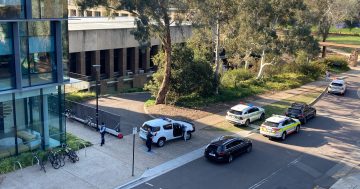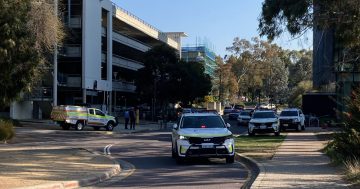
ACT police on the scene at the ANU campus on Monday. Photo: Joanne Griffiths.
In the aftermath of this week’s stabbing attack at the ANU, those in authority rushed to reassure Canberrans that they were safe.
Aware of the damage such an attack could do to its reputation, particularly with overseas students, the ANU was quick to emphasise the safety of its campus.
“We’re a peaceful campus,” ANU Deputy Vice-Chancellor Professor Sally Wheeler said.
But it didn’t help that it was allegedly the second time the man charged, Alex Leonard Ophel, had embarked on an indiscriminate attack on campus.
Police also moved to reassure the public.
“Obviously, any violent offence is concerning. ANU and Canberra are usually very safe places,” Detective Stephanie Leonard said.
As did Attorney-General Shane Rattenbury: “Canberra is a very safe city … [this] is a very rare incident for the ACT.”
But like everyone, Mr Rattenbury wants to know why Ophel, a paranoid schizophrenic who was found not guilty of the 2017 baseball bat attack at the ANU due to mental impairment, was at large and able to find his way to the campus for another alleged attack.
He has ordered the Chief Psychiatrist to investigate the circumstances surrounding Ophel.
This case is a reminder of crimes committed by people while on bail or after light or suspended sentences.
The breakthrough arrest this week in the murder of Irma Palasics also revived memories of the horrendous home invasion she and her husband suffered and a trotting out of the ACT’s unsolved murders.
For those with a law and order axe to grind or who have lost loved ones, these violent acts point to a jurisdiction soft on crime where understaffed police have their hands tied and the courts give criminals too much of the benefit of the doubt.
While there is a case for more police as Canberra’s population grows, all of the above are correct in saying Canberra is generally a safe place.
That may be of little comfort to those affected by crime, whether they be random acts, break-ins, road trauma, or sexual, family and domestic violence.
Their experience should not be played down.
But Canberra is still a small town, so when major crime happens, it is a big deal, and the courts are reliable fodder for the news cycle, magnifying crime’s prominence.
It is important not to lose perspective because statistically, crime rates in the ACT have been falling in recent years and if you want to live in a safe city, Canberra is the place to be compared with the other capitals.
Giving police more powers, compromising the bail system and removing discretion from the courts is a simplistic approach that will mean overflowing prisons – and the Alexander Maconochie Centre is already full, so judges and magistrates are still putting offenders away – but won’t prevent bad things happening.
It has been tried before and failed.
Having said that, the government needs to ensure that the Chief Psychiatrist’s investigation is swift and that if any systemic issues are found, they are fixed.
Canberra may be safe, but there is no point tempting fate.
















